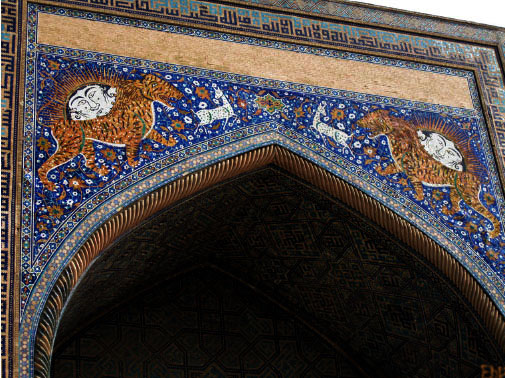
Sher Dor Madrassa in Samarkand, Uzbekistan (Photo: Emily O'Dell)
This week in Beirut, my students and I are contemplating the relationship between Islamic philosophy and ecology, while reading
“The Case of the Animals versus Man Before the King of the Jinn” (a translation from the
Epistles of the Brethren of Purity)[اخوانالصفا]. In this allegorical fable–written in the 10th century by an esoteric brotherhood of Muslims in Basra and Baghdad–eloquent representatives of the animal kingdom appear before the revered “King of the Jinn” to bring a case against humanity–for abusing and enslaving them. While the text presents both sides of a rich, ecological debate, it also radically critiques human beings for being in constant dispute with one another, and for exploiting the environment for self-interest and profit.
Here’s what the mule says during the trial:
Your Majesty, if you consider how dense, vulgar, uncouth, and foul-mouthed humans are, you’ll be amazed at how little they discern their own odious ways, vicious traits, depraved characters, and vile actions, their manifold barbarities, corrupt notions, and conflicting dogmas. They don’t repent or take stock but ignore the warnings of their prophets and scorn the commands of their Lord, who said, “Let them show compassion and indulgence. Would you not wish God to show you mercy?”
